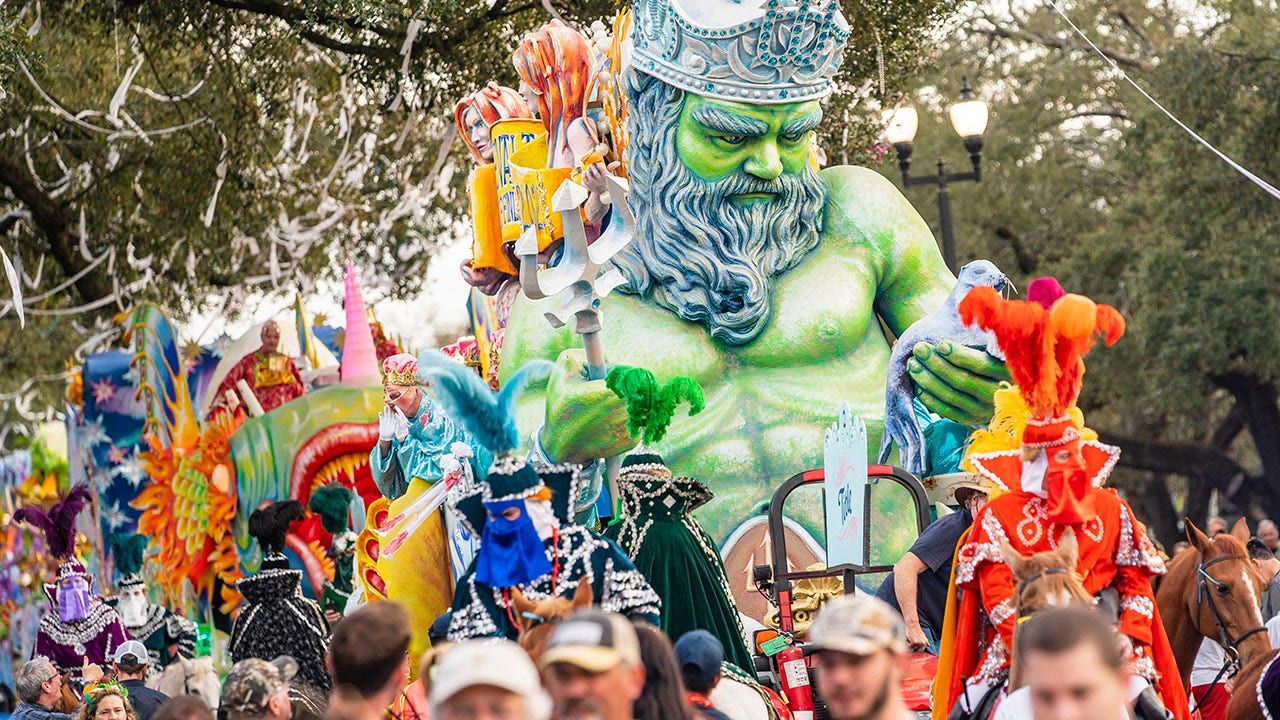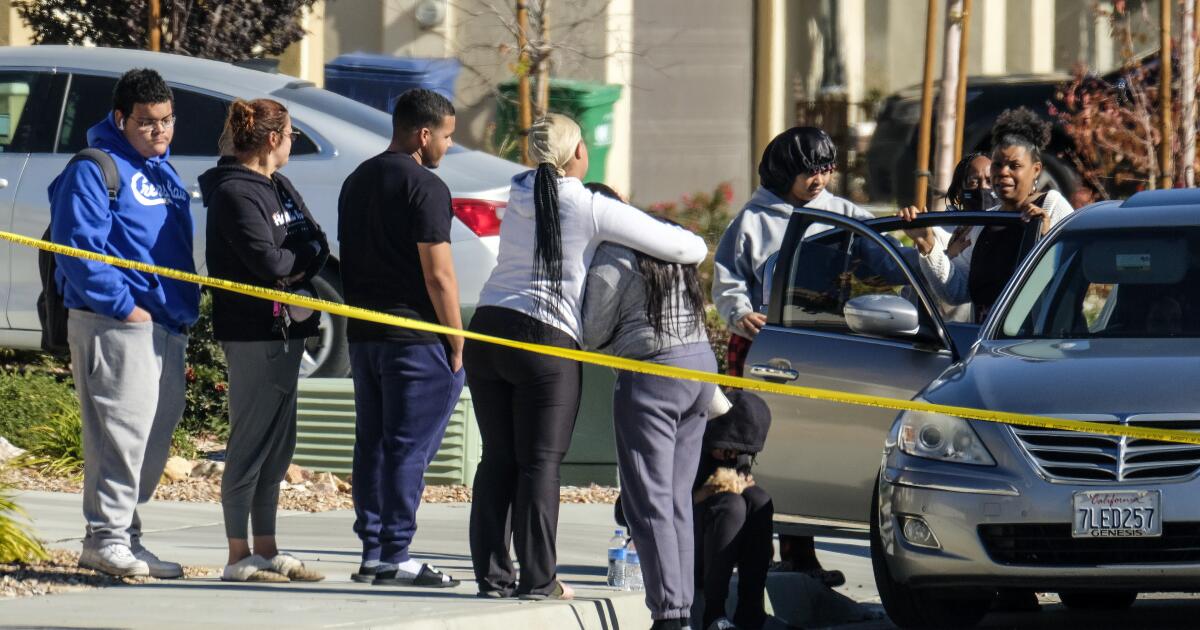The people of New Orleans took to the streets to celebrate Mardi Gras for the first time on this day in history, February 27, 1827.
“A group of students in masks and costumes paraded through the streets, partying and dancing,” National Geographic reports on the festival's origins in New Orleans.
The Crescent City is globally associated with today's Roman Catholic festival.
However, it was actually first celebrated in the United States 124 years earlier in Mobile, Alabama.
ON THIS DAY IN HISTORY, FEBRUARY 26, 1993, THE WORLD TRADE CENTER IS BOMBED IN A HORRIFIC ATTACK
The excessive celebration of Mardi Gras (Fat Tuesday in French) is followed by Ash Wednesday, a solemn day in the Christian tradition. Six weeks of Lent begin, preparation to mark the crucifixion and then, on Easter Sunday, the resurrection of Christ.
Mardi Gras in New Orleans has its roots, like many other Christian traditions, in seasonal pagan rituals, flavored by the exceptionally rich cultural stew that shapes the city today.
The 2023 Krewe of Proteus parade took place on February 20, 2023 in New Orleans, Louisiana. (Erika Goldring/Getty Images)
Lupercalia, a hedonistic celebration held every February in Ancient Rome, is one of the traditions adopted by Christians that shape Mardi Gras, according to various sources.
After 1827, Mardi Gras quickly became a more formal event, now deeply rooted in New Orleans culture.
“The excessive celebration of Mardi Gras (Fat Tuesday) is followed by Ash Wednesday, a solemn day in the Christian tradition.”
“The holidays became increasingly popular, and in 1833 a wealthy plantation owner named Bernard Xavier de Marigny de Mandeville raised money to finance an official Mardi Gras celebration,” says Hiistory.com.
“After rowdy revelers began to turn violent during the 1850s, a secret society called the Mistick Krewe of Comus organized the first large-scale, well-organized Mardi Gras parade in 1857.”
PIRATES VAGINATE THROUGH THE SEAS AND STREETS OF TAMPA, PROVIDING FAMILY ENTERTAINMENT TODAY
Krewes (social clubs common in communities around the Gulf of Mexico) continue to organize and define Mardi Gras today.
The krewes of Tampa, on Florida's Gulf Coast, are responsible for that city's pirate-themed Gasparilla festival, held every year, also in late winter, for 119 years.
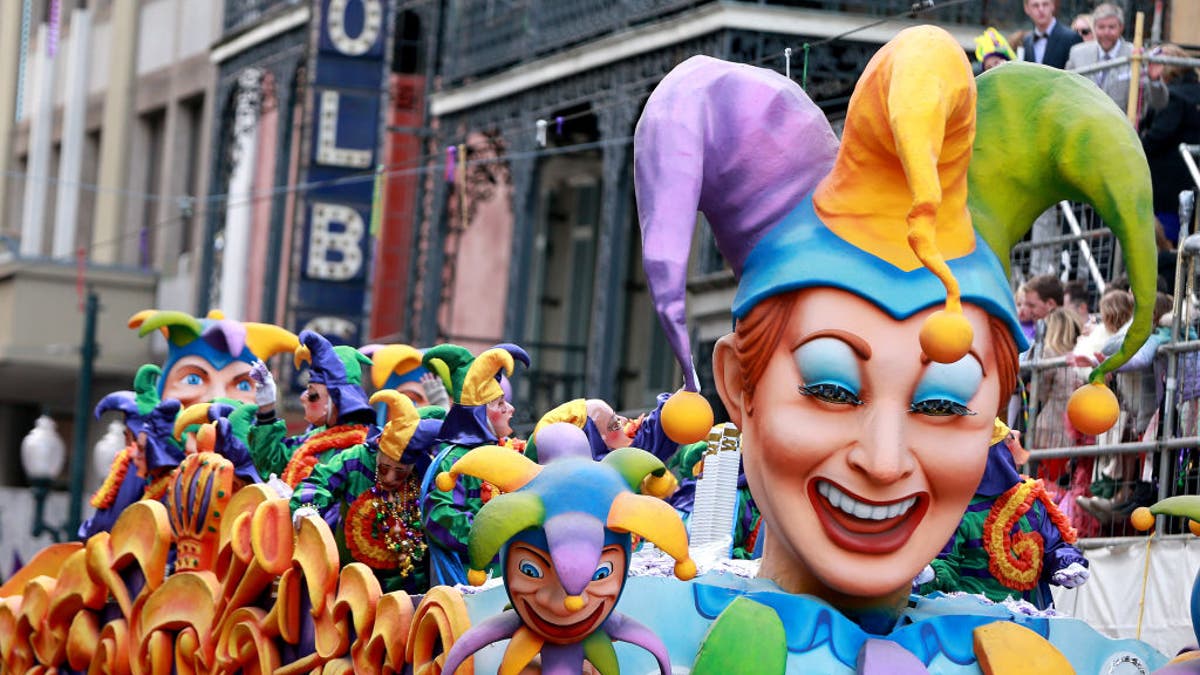
Members of the Krewe of Rex King of Carnival parade down St. Charles Avenue Mardi Gras Day on March 5, 2019, in New Orleans, Louisiana. (Sean Gardner/Getty Images)
“Comus is recognized as the oldest continuously operating Carnival krewe in New Orleans, although it stopped parading rather than submit to a 1991 City Council ordinance requiring parading organizations to certify that they do not discriminate in choosing their members” , the New Orleans Times-Picayune reported. in 2017.
“The krewe continues to hold a ball on Mardi Gras night, and Comus, Rex, and their consorts gather there each year to declare the end of Carnival.”
WHAT IS MARDI GRAS, WHERE IT ORIGINATED, AND HOW SHOULD YOU CELEBRATE THE CHRISTIAN OCCASION?
Several sources, including the official Mardi Gras New Orleans website, tip their cap to nearby Mobile, Alabama, in honor of the country's first Mardi Gras.
“On March 2, 1699, French-Canadian explorer Jean Baptiste Le Moyne Sieur de Bienville reached a piece of land 60 miles directly south of New Orleans and named it “Pointe du Mardi Gras” when his men realized that “It was holiday eve,” writes MardiGrasNewOrleans.com, the city's official festival website.
“Mardi Gras originated in 1703 right here in our port city.” – Visit Mobile.com.
“Bienville also established 'Fort Louis de la Louisiane' (now Mobile) in 1702. In 1703, the small settlement of Fort Louis de la Mobile celebrated America's first Mardi Gras.”
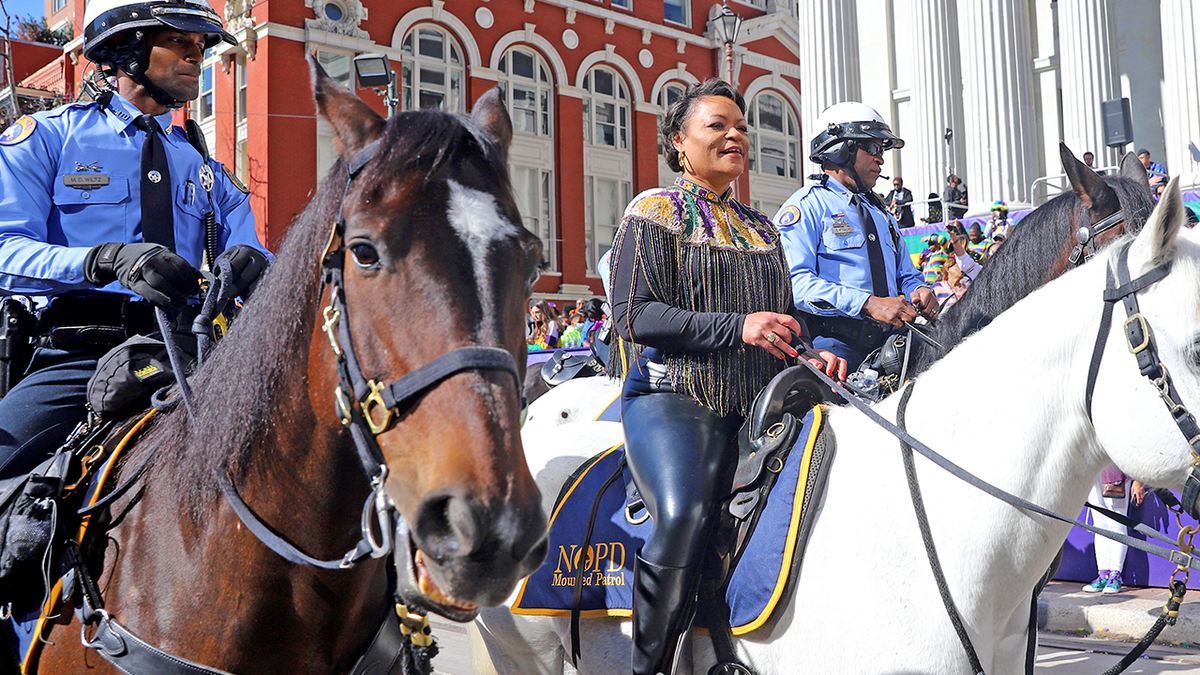
New Orleans Mayor LaToya Cantrell arrives on horseback at the reviewing booth at Gallier Hall as the 1,500 Krewe of Zulu riders parade down St. Charles Avenue on Mardi Gras Day with their 44-float parade titled Zulu Salute the Divas and Legends on March 1. 2022, in New Orleans, Louisiana. (Michael DeMocker/Getty Images)
“Mardi Gras originated in 1703 right here in our port city,” says VisitMobile.com.
“It was revived after the Civil War, when Citizen Joe Cain, fed up with postwar misery, led an impromptu parade through the city streets. We've been doing it ever since, and commemorate the annual occasion with stately parades, floats colorful and flying mooncakes.”
Mobile entertains a million Mardi Gras revelers each year, the city proclaims, with “elaborate themed floats manned by masked mystical societies, mounted police and marching bands.”
CLICK HERE TO SUBSCRIBE TO OUR LIFESTYLE NEWSLETTER
Mardi Gras, which this year fell on February 21, is simply the end of more than a month of celebration before Lent.
“Technically, 'Carnival' refers to the period of feasting and fun that begins on January 6 (Epiphany) and ends on Mardi Gras,” writes Mardi Gras New Orleans.
“Locals tend to call the season 'Carnival,' and for us, the last two weekends leading up to Tuesday are 'Mardi Gras.'”
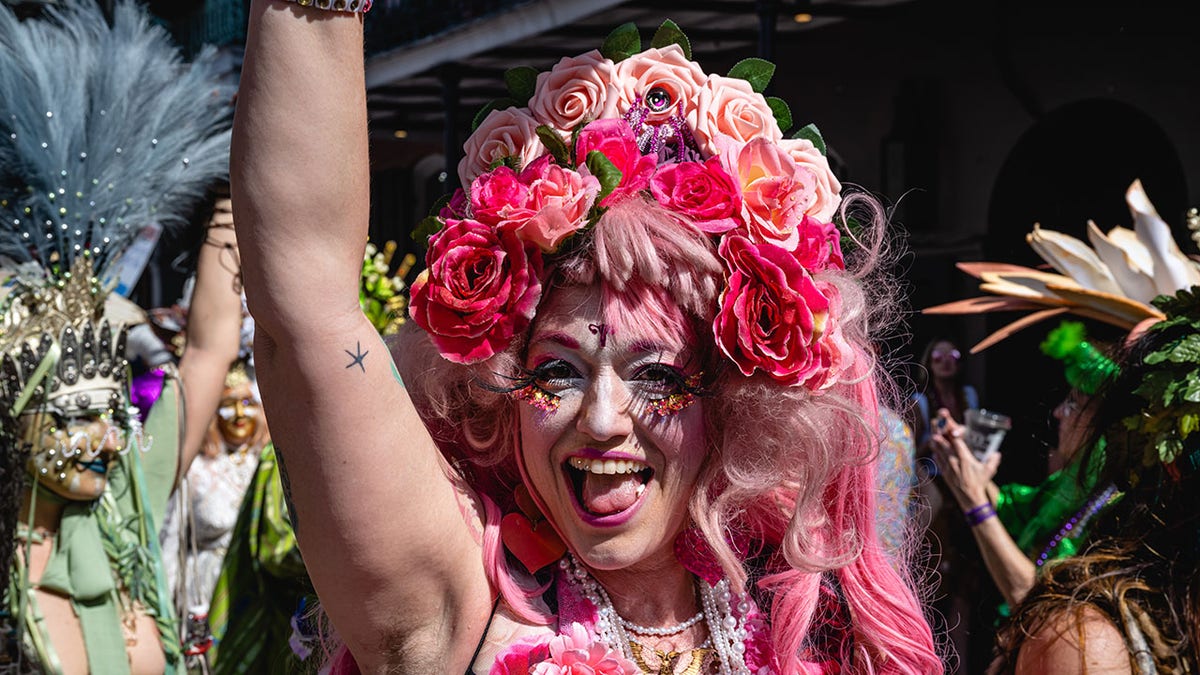
A Mardi Gras attendee dressed in a flower costume waves and smiles after a parade in the French Quarter on February 21, 2023 in New Orleans, Louisiana. Fat Tuesday marks the last day of the Carnival season, where costumed attendees flock to multiple parades and parties throughout the city. (Jon Cherry/Getty Images)
Mardi Gras has become a global celebration enjoyed by people of many cultures and traditions, but it is still rooted in cities with large Roman Catholic communities.
Rio de Janeiro, Brazil and Venice, Italy, also have large, world-renowned carnivals.
Mardi Gras in New Orleans remains an exceptionally spectacular celebration that highlights the incredible diversity of Catholicism in the United States.
CLICK HERE TO GET THE FOX NEWS APP
“Mardi Gras traditions are heavily influenced by the cultural history of New Orleans: a rich mix of Native American, Spanish, French, Cajun, African American and Caribbean cultures, combined with the economic and cultural influences of the Mississippi River,” writes National Geographic .
For more lifestyle articles, visit www.foxnews.com/lifestyle

